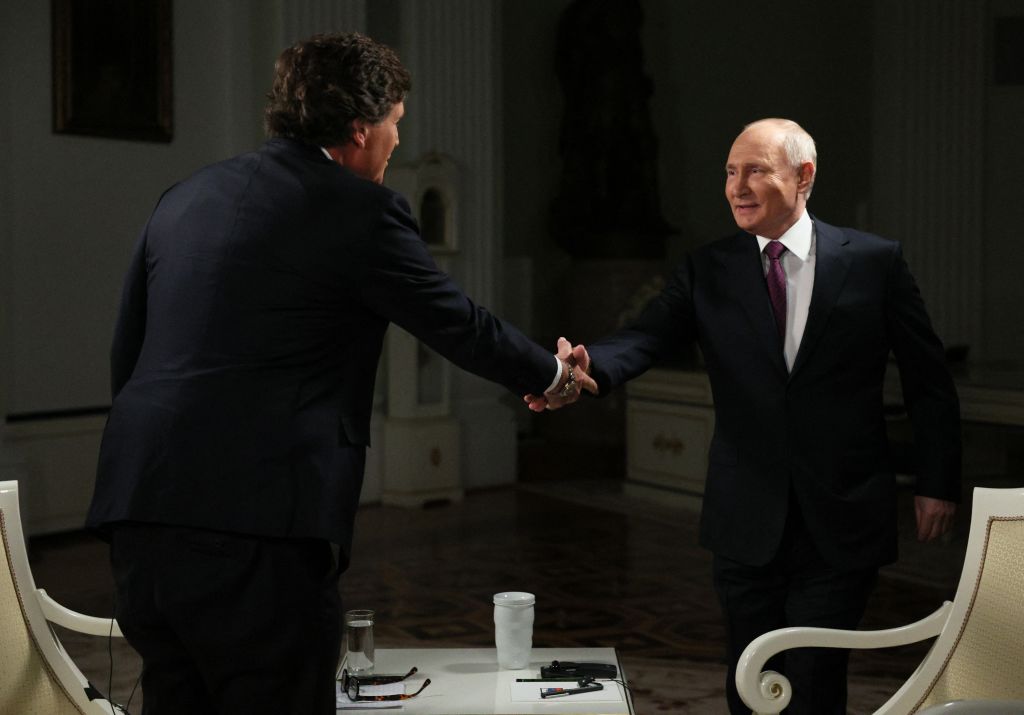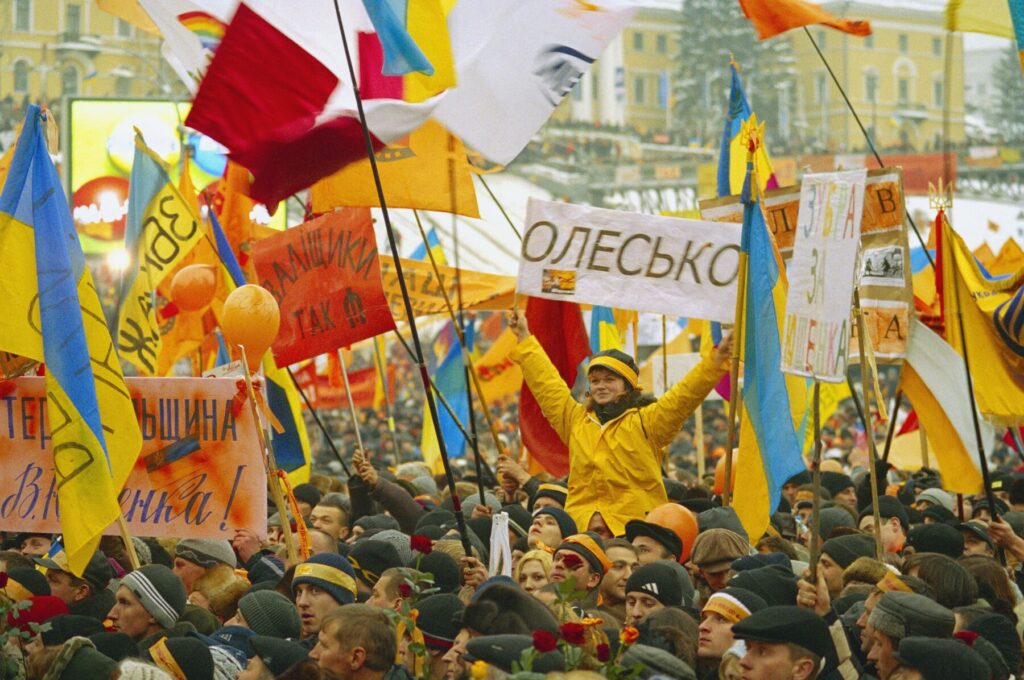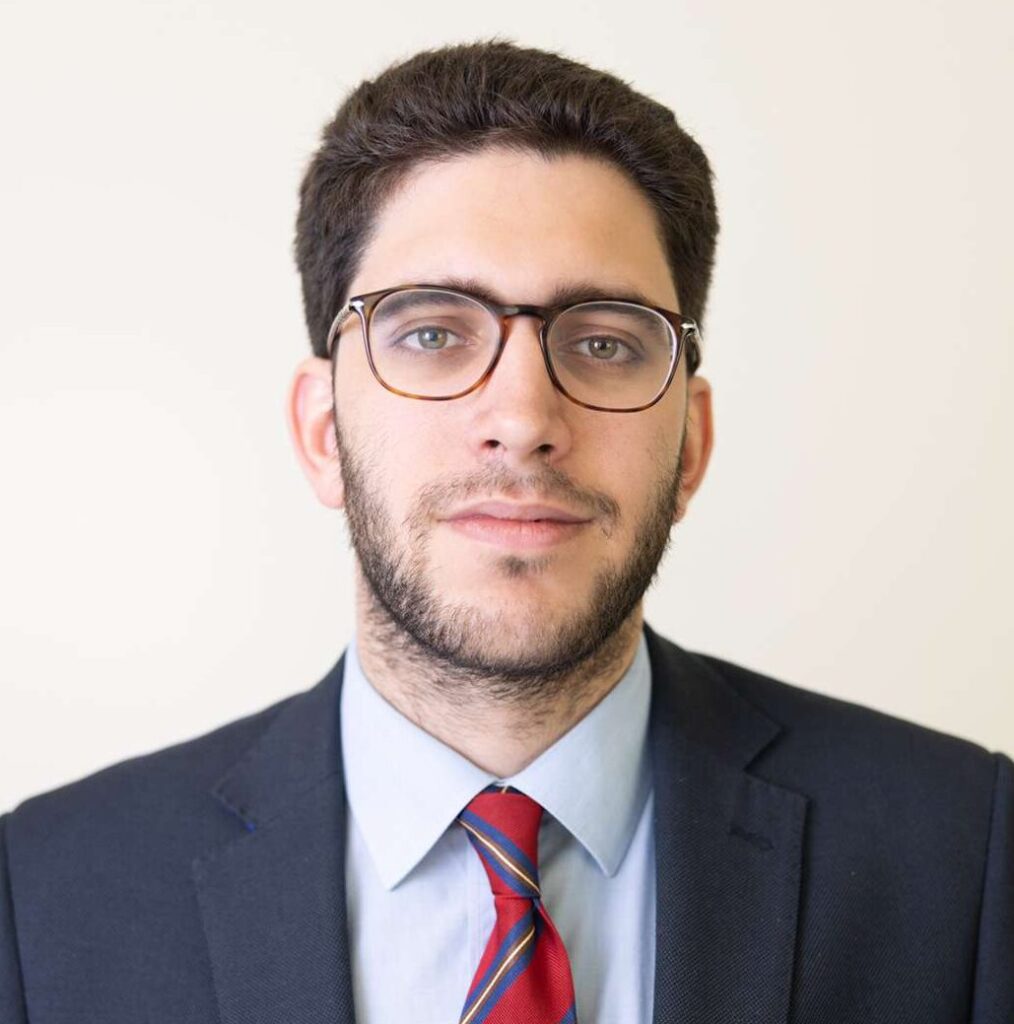On 8 February, American journalist and conservative commentator Tucker Carlson interviewed the President of Russia, Vladimir Putin, in the Kremlin. This was a highly anticipated and controversial event which drew much criticism: two liberal members of the European Parliament went as far as to suggest that Carlson could be sanctioned by EU authorities for acting as a mouthpiece of the Russian government – a possibility which the European Commission promptly ruled out.
Author: Juan García-Nieto
Targeting or censoring Carlson would be a mistake. Western journalism boasts a long tradition of interviewing and confronting the most heinous political figures (from Mao to Pinochet) and terrorists. The invasion of Ukraine was morally abhorrent. Still, the media should strive to know what the main culprit behind the invasion thinks or says.

That said, Tucker Carlson’s past praise of Putin hardly made the former news anchor an example of the dispassion and coolness which are needed for an interview of this calibre. And, unsurprisingly, the interview was an embarrassing display of fawning and uncritical questioning by Carlson, who showed himself unwilling and incapable of piercing through the torrential rant spewed by Putin. Such a one-sided conversation might be convenient if the interviewee is an informed scholar, not a dictator who embarked on a rambling soliloquy, presenting his lopsided historical narrative and his lies without challenge. It is one thing to question much of the Western consensus when it comes to the war in Ukraine, its causes or its implications. It is another to become little more than a gullible propagandist for the Russian government and a sycophantic envoy of the antiliberal, reactionary hard right – belying Carlson’s own self-fashioning as a herald of truth. But again, the fact that Carlson parrotted the Kremlin’s disinformation should not lead to the EU or any Western government to sanction or censor him. Doing so would not only violate his free speech; it would also play right into Putin’s hands.
We can identify two main shortcomings in Carlson’s servile approach to Putin. Firstly, there was his sheepish refusal to push back against the President’s factually wrong claims;. Secondly, he displayed striking ignorance about basic elements of Ukrainian-Russian relations.
At one point in the interview, Putin complained about the repetition of presidential elections in Ukraine in 2004. Those elections pitted pro-European candidate Viktor Yushchenko against the pro-Russian Viktor Yanukovych in a second round on 21 November, after a first round in which no candidate had received more than half of the total votes. Putin-backed candidate Yanukovych won, but Ukraine’s Supreme Court mandated the repetition of the election. The repetition took place on 26 December 2004. Yushchenko, the pro-European candidate, won and became President of Ukraine, much to Putin’s chagrin.

In the interview with Carlson, Putin denounced the repetition of the second round as unconstitutional, and said that Western meddling was to blame for this “coup d’état” because “someone in the United States didn’t like the outcome” of the annulled elections. He conveniently forgot to mention that said repetition had been ordered by Ukraine’s Supreme Court due to voting irregularities, which mainly benefitted Moscow’s backed candidate Yanukovych, who might have received up to 3.8 million fraudulent votes. Yanukovych lost to Yushchenko in the re-run, declared largely “free and fair” by international observers. But owing to Carlson’s passiveness in front of Putin’s propaganda, viewers might leave with the misinformed impression that the 2004 elections were rigged in favour of Yushchenko.
The second problem, Carlson’s ignorance, was explicit in the same section of the interview. While listening to Putin’s baseless accusations of a Western-engineered coup during the re-run of the 2004 elections, Carlson confused them with the elections of 2014. Being apparently completely unaware of such a watershed moment in Ukrainian contemporary history serves as a testament to Carlson’s utter lack of preparation, seeing that just a cursory understanding of recent Ukrainian history would have sufficed to call out Putin’s lies.
There were mistakes and incongruences in the American and European approach towards Russia and Ukraine since the collapse of the Soviet Union, which was often unrealistic. Russia’s refusal to acknowledge the independence of its former Soviet republics worsened the situation.

But by caving in and giving free rein to Putin, the interview became a one-sided affair in which the viewers’ only input was the propaganda hurled by the Russian president during his two-hour long rant. This hindered the potential of the conversation, whose quality and impact pales in comparison with past interviews to similarly brutal leaders who were held into account by fearless, provocative journalists – nothing like Carlson’s sycophantic, servile and meek approach towards Putin.
Be that as it may, Carlson, and any journalist in a free society, should never be the target of sanctions just because he failed to conduct a more competent interview. The public has a right to know what Putin says, however deceitful his claims are, and the free press should be able to interview any dictator without fear of sanctions at home. Carlson just should have done a better job at it.
Cover photo credit: The Strategist (ASPI)

Juan García-Nieto is a Research Assistant at ESADEGeo and a columnist at Young Voices Europe. He is also Editor-in-Chief at European Guanxi.



